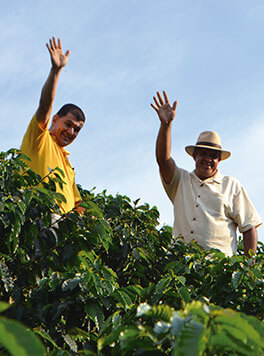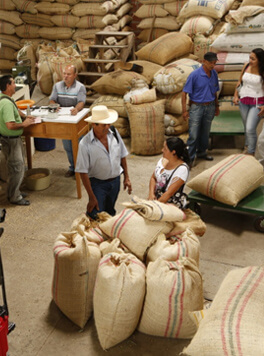As the scientific arm of the FNC, Cenicafé generates knowledge and technologies focused on increasing productivity, competitiveness, sustainability and profitability of the country’s coffee farming, which are then transferred to producers.
The scientific research and technological development that the FNC offers to coffee growers through Cenicafé provide them with improved seed varieties (more productive, resistant to diseases and better adapted to climate variability), best practices of soil conservation, agroforestry, integrated weed management, monitoring and recording of climatic variables, crops with modern agricultural practices, integrated pest and disease management, water saving, and first developments of assisted harvesting, among other issues.
Get to know the latest technological developments by Cenicafé:
Tools for assisted harvesting
These tools contribute to efficiency of labor in harvesting and reduce the costs of this activity.
Collection meshes (2018)
These are meshes laid on the ground to receive the fruits handpicked by collectors. Compared to traditional collection (containers, buckets, baskets, etc.), harvesting of coffee with meshes can increase yield by between 40% and 45% in kg of cherry coffee collected. Times and movements are optimized in collection because with this technology the fruits are only detached and dropped to the ground, while in the traditional methods more time was spent in taking the collected coffee to the container.
Manual collection with meshes is not for all harvest passes. They are not suitable in passes of low supply of ripe fruits; for this reason, they should be used in higher supply passes by withholding passes between 30 and 35 days.
Manual collection with meshes is not for all harvest passes. They are not suitable in countries where the supply of ripe fruits is low; for this reason, they should be used in countries with a higher flow and with endurance of countries between 30 and 35 days.
Learn more about collection meshes
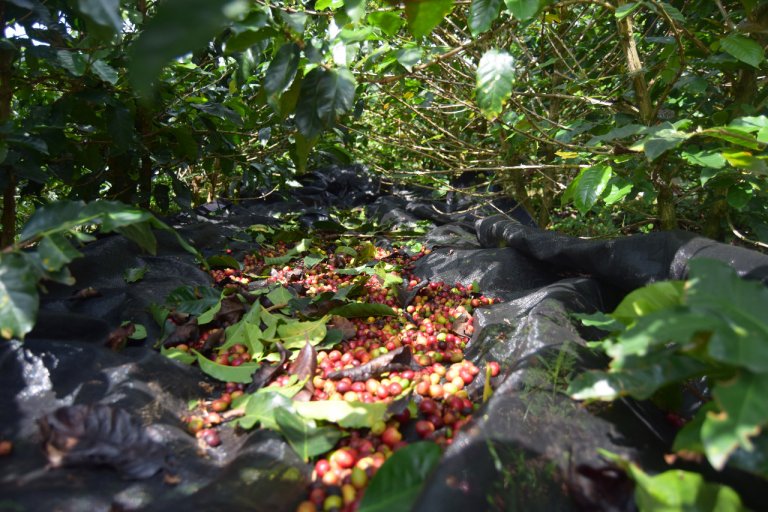
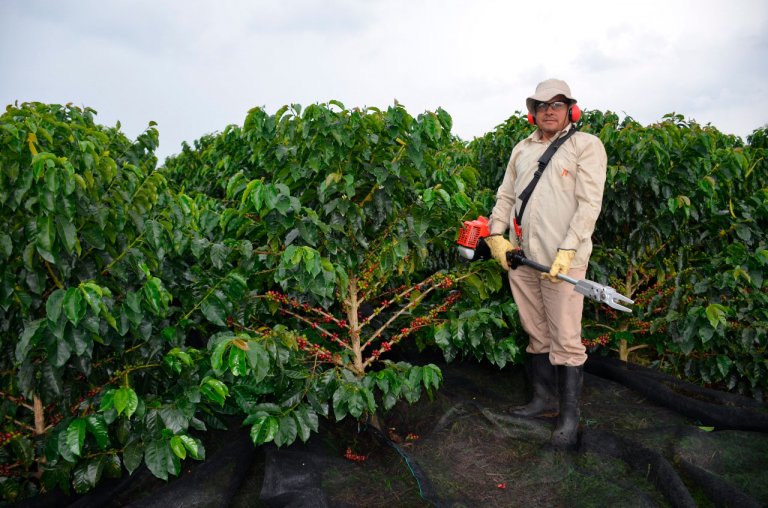
DSC18 shaker
The DSC18 shaker is the result of the hard and constant work of the FNC to reduce collection costs per kilogram of cherry coffee, require less labor and thus improve profitability of producers.
This equipment operates with a vibration system that, by making contact with the tree branches, detaches the bean, which falls to the ground onto the meshes, is collected and transferred to the wet mill.
Coffee growers can collect on average 50% more coffee than with the traditional container method, which means a lower cost per kg of cherry coffee collected. This increase varies depending on the skill of the machine operator.
Learn more about the DSC18 shaker
Fertilization
New fertilizer formulations (2018)
Cenicafé developed two general fertilizer formulations with which growers can properly feed their coffee plantations.
The first formulation is: 26-4-22 (26% nitrogen, 4% phosphorus and 22% potassium), for coffee soils where magnesium is normal and has a balanced composition. The second one is: 23-4-20-3-4 (23% nitrogen, 4% phosphorus, 20% potassium, 3% magnesium and 4% sulfur), for low magnesium and sulfur soils.
These two general formulations are a great alternative for those coffee growers who, for some reason, do not conduct a soil analysis, which is the quintessential tool for an ideal and balanced fertilization of coffee plantations.
Learn more about fertilizer formulations
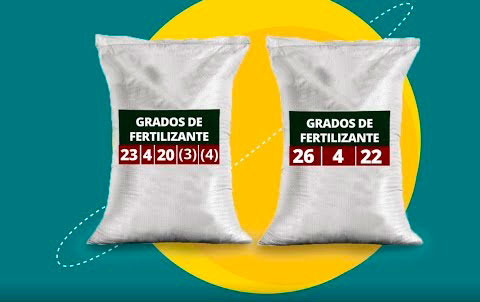
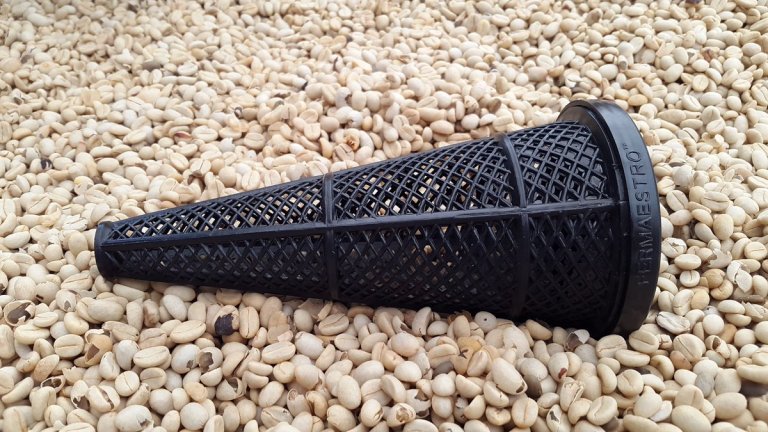
Fermaestro (2013)
This technology is a key control tool not only for fermentation, but also for the processes of selection, pulping, classification and application of good agricultural practices.
With this method, the optimal coffee washing point is not determined by time, which varies by fermentation process factors such as coffee ripeness, environmental conditions, tank type, quantity of coffee, variety and processing method.
Learn more about the fermaestro
Resistant varieties (2016-2017)
Cenicafé has developed varieties such as Cenicafé 1, general Castillo®, regional Castillo® and Tabi, which are resistant to rust and the coffee berry disease (CBD).
These varieties share excellent agronomic attributes such as high productivity and physical and sensory quality of the bean, in addition to adapting to large geographical areas.
To guarantee seed traceability, it is recommended to acquire certified seed in the coffee grower committees through the coffee stores.
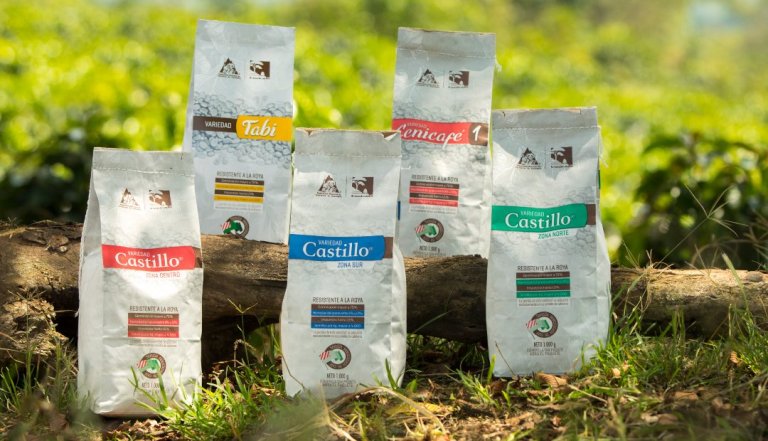

Ecomill LH300 (2017)
The FNC’s commitment to environmental sustainability in Colombia’s coffee production is constant and innovative, so Cenicafé makes this technology available to producers for wet-processing coffee with little water.
It allows wet milling with natural coffee fermentation and its subsequent washing with up to 0.5 liters of water per kilogram of dry parchment coffee (dpc) produced. This new equipment joins the Ecomill® family, which essentially saves water in wet milling compared to other systems and prevents pollution by wastewater reuse.



